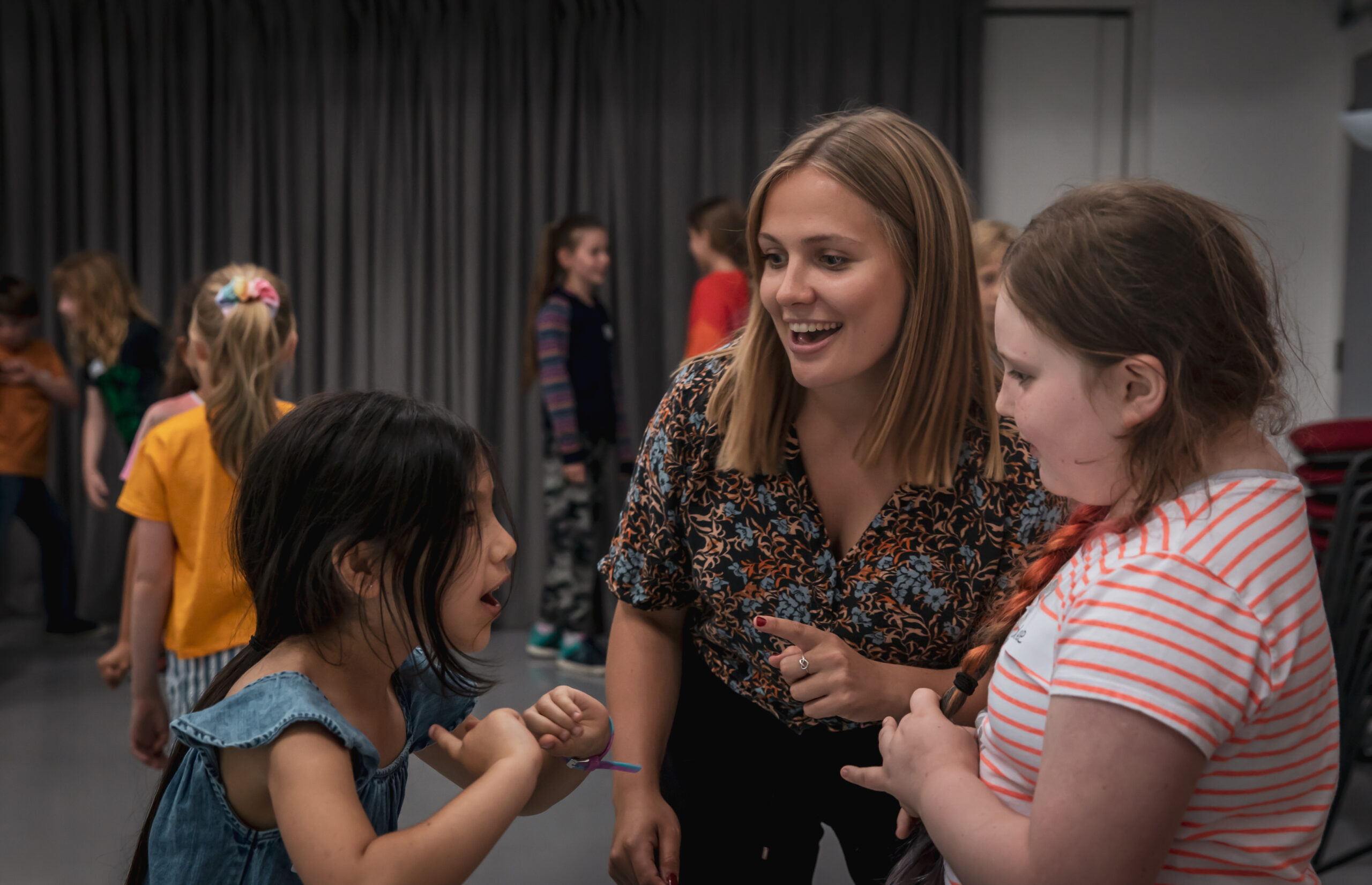Looking for a side job? Start teaching drama, dance or singing as a freelancer now with this helpful guide and teaching tips.
Many actors, singers, and dancers transform their passion for the performing arts into a rewarding teaching career. Teaching drama, dance, or singing as a freelancer offers a decent hourly wage, the opportunity to inspire the next generation of performers, and a chance for creativity and personal development.
Various part-time theatre groups across the UK – franchises, local youth theatres, after-school clubs, and some primary and secondary schools (especially private and SEND) – are often looking for freelance drama, dance and singing teachers.
However, finding freelance teaching work can be competitive. To get your foot in the door, you might need to start as a teaching assistant or cover a few lessons first. Here are some tips to get you started:
Why Become a Freelance Drama, Dance or Singing Teacher?
Teaching isn’t for everyone, but if it resonates with you, you might find it even more rewarding than your performing work. I certainly did.
You can expect to get paid between about £25-£45 per teaching hour. You’ll have to plan your lessons and perhaps shows outside of teaching hours, which can definitely add up. However, compared to many other jobs, it’s still well paid – plus the prep can be lots of creative fun.
Freelance teaching hours can work well alongside auditioning, as it tends to take place on weekends, school holidays and after school.
It’s incredibly rewarding to know you’re helping your students with confidence, concentration, creativity, critical thinking, empathy, listening, storytelling and teamwork.
What You Need for Teaching
You won’t need any qualifications, but a diploma, degree and/or master’s degree in your chosen subject is often desirable. The most important thing you’ll need is a love for what you’re teaching and a desire to help your students learn.
You’ll also need an enhanced DBS check to work with children. It’s likely the person or organisation hiring you will help you apply for one, but they might expect you to pay the fee yourself.
Some experience of working with children is also a bonus. If you don’t have experience with children, you could offer to assist as a teaching assistant at a local performing arts school or youth theatre to learn from other teachers.
How to Find Teaching Work
Put together a CV and send it out to local performing arts groups and youth theatres. Some well-known franchises include Stagecoach Theatre Arts, The Pauline Quirke Academy, Razzamatazz Theatre Schools, Preform, Jigsaw, Little Tots, Little Voices, Drama Kids, Petite Performers and Theatretrain.
There will also be independent local drama and dance groups (less likely for singing) in your area that you can approach. Sometimes, these places advertise for teachers, but most of the time, they work from a stack of CVs they’ve been sent or through word of mouth.
In your CV, include your training, performance credits, any experience working with children and/or teens, and anything else relevant to a teaching position.
In your cover letter/email, add a sentence or two about what drives you to teach. If you attended a performing arts group or youth theatre when you were younger, you might like to mention which one and how it impacted you.
When you write to the directors and heads of each youth theatre or school, take your time to find their name and spell it correctly. Also, name their school in the email so the person reading it doesn’t feel generic.
You may not hear back once you’ve sent your CV for a while, but many schools will keep your CV on file. Much of my freelance drama teaching work has sprung from a CV I sent months ago. I’ve had panicked calls saying, “Can you be here in an hour? Our teacher just called in sick!” so always have a lesson plan at the ready. After covering, a job could be offered some months later.
Some schools will also hold recruitment days and might invite you in for a group audition or a trial lesson. Others might try you out for a few sessions or even a term before offering you a position.
Teaching Tips
A school or group is very unlikely to hire you without first seeing you teach. After all, a talented performer does not necessarily equal a talented teacher. If you haven’t taught before, it will likely take a little while to get the hang of it. Here are a few tips from my own experience that might help:
- Learn classroom discipline.
Respecting your students and being inspiring will go a long way, but you will also need to set boundaries. - Establish a signal for silence.
This is one of the first things I do when I meet children for a drama class. The best signals are those where the teacher says (or sings) a short phrase and the children finish it. For example, you might say, “Strawberry,” and the class says, “Ice cream.” You can add a little movement, too, if you like. - Be firm but fair.
Many new freelance performing arts teachers aren’t strict enough and, over time, find their lessons collapse because of this. You can be fun and strict at the same time – it doesn’t have to be either or! - Never force anyone into doing a drama game or improvisation.
Always keep it appealing and exciting, but don’t pressure anyone into doing something they don’t want to. I often say, “We’d love to see your improv, but you don’t have to show it if you don’t want to.” This helps to keep a safe space for everyone. - Choose drama and improv games that bring people together.
I tend to avoid drama games with a competitive element as I prefer drama to be inclusive, not exclusive. - Create a safe space.
Praise students and set a good example by joining in. Don’t tolerate any bullying, teasing or negative comments. - Be yourself.
Students will feel more connected to you if you are authentic. Don’t be afraid to sparkle and share your talent and humour – they’ll love it! - Be adaptive.
If something isn’t working, explain it more clearly and try again. If it still doesn’t work, move on. Reflect on each lesson and think about what worked and what didn’t for when you plan your next session. - Keep it simple and fun.
Most schools and groups will ask you to put on a production for parents. To renew your contract, you will need to gain the skills to pull this off quickly. I’ve seen many performers fail at this teaching hurdle, mainly because they’ve been over-ambitious with the show. Keep it simple, keep it fun, remain positive and remember that process over product always wins.
Planning Lessons
You’ll need to have a perfect lesson plan for your class to fly. Try to adapt it to the right skill level for each group. If you’ve trained in your discipline, you’ll likely have lots of games and exercises you can teach from your training. There are also lots of books available with lesson content for drama teachers.
Many teachers have found my books, 100 Acting Exercises for 8-18 Year Olds, Acting Games for Improv and Drama Games for Early Years, helpful when planning lessons.
Freelance teaching can be difficult to break into, but once you’ve mastered the teaching skills needed, it’s highly rewarding and a great way to work alongside auditioning. Sharing your passion and training with students will inspire them, and you might find they inspire you, too!
Take a look at our website for more acting tips and industry advice, including:
- How to set yourself up as a freelancer
- An actors’ survival guide to side jobs
- Should you get a side job in a theatre as an actor?
 Sam teaches drama and writes fiction and drama teaching resources. Author of ‘100 Acting Exercises for 8-18 Year Olds’ and the ‘Pocketful of Drama’ book series, which includes ‘Acting Games for Improv’ and ‘Drama Games for Early Years’. Instagram @pocketfulofdrama Twitter @SamMarsdenDrama
Sam teaches drama and writes fiction and drama teaching resources. Author of ‘100 Acting Exercises for 8-18 Year Olds’ and the ‘Pocketful of Drama’ book series, which includes ‘Acting Games for Improv’ and ‘Drama Games for Early Years’. Instagram @pocketfulofdrama Twitter @SamMarsdenDrama
Headshot credit: Rosalind Hobley



















